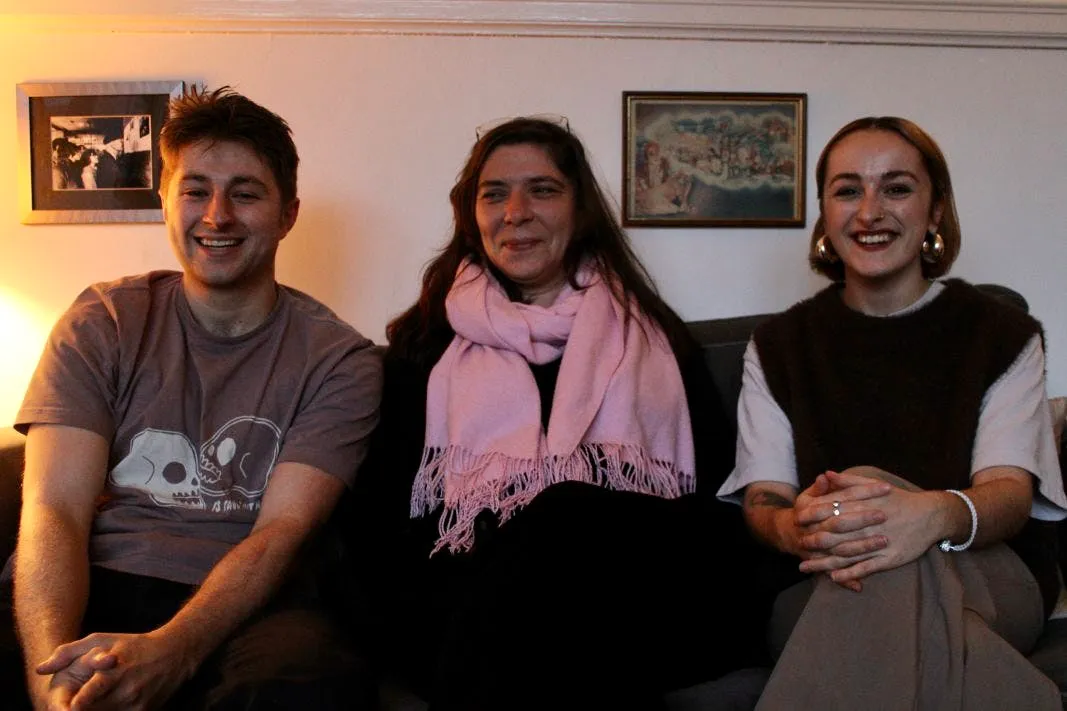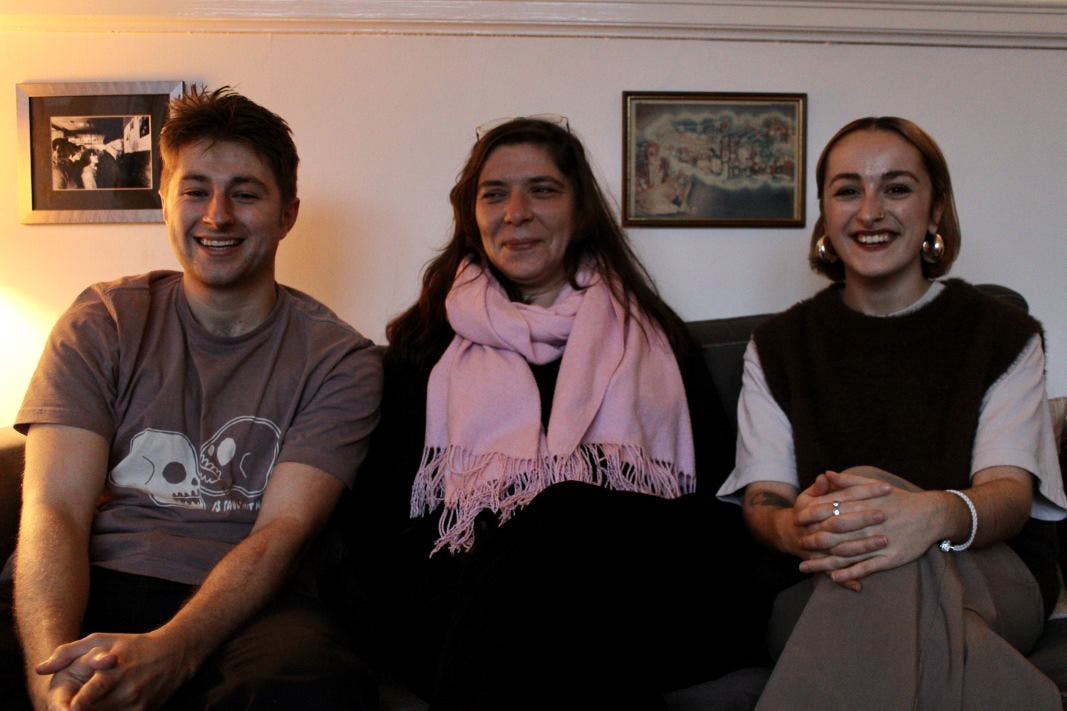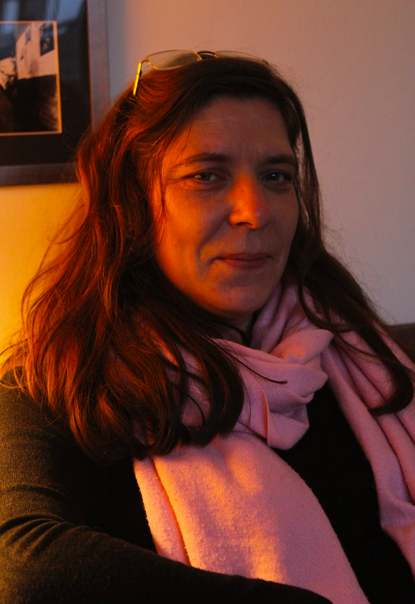What Liverpool needs from local news - and why I'm joining The Post

A note from our new recruit
In my early teens, I had a heavy relationship with local news. Each week I’d lug 500 newspapers in a rickety trolley up and down the steep hills of New Brighton. The night before, my family would form a conveyer belt in the kitchen, adding in the extras, folding them up and into the trolley ready to go.
It didn’t occur to me then, as I shoved the freshly-minted copies of the Wirral Globe through letterboxes, fingers smudged with print and paper cuts, that one day I’d end up as a journalist. But I did see how important local news was to people.

Like the lady in her sixties, hair immaculately curled (and with that slight tint of purple you don’t see too often these days) who used to open the door as soon as I turned her creaking gate. She seemed to live alone apart from a cat in the window and her little dog always yapping towards me as I walked up the pathway, her hand outstretched in anticipation. I’d imagine after she shut the door she’d settle into an armchair with a cuppa to digest the latest Wirral goings-on, that little yapping dog resting gently on her lap. For all I know she could have been waiting for litter tray liner, but I liked to dream.
There would be complaints, too, if the paper arrived late, as I’ll admit it sometimes did (500 papers were a lot for a 13-year-old to dish out in two days). People cared about their local news and they still do. I was an avid consumer myself, reading it back to back, alongside all the others in the house. Eventually I got old enough to find opportunities paying better than the buttons I got for all that effort and moved on to pastures new — and so it went for the next 15 or so years.
Starting university in Liverpool in the early 2000s, I moved to L8, spending over a decade as a note-taker, attending hundreds of lectures across the city’s universities and working other jobs in the summer — as a tour guide on the ill-fated ‘duck bus’, in temporary admin jobs in the probation service, local councils, housing associations and property companies. I worked as a support worker, carer, cleaner, maker of breakfasts, sold jigsaws, pulled pints, rode advertising bikes. You name it, I’ve probably tried it.
When I became a mum, I jacked in the nomadic employment lifestyle to run an engineering services startup — but in the back of my mind I had the growing sense of a need to follow my passion for storytelling and local news.
And thus began a slow journey towards journalism. It started eight years ago, with a week at the Echo’s Old Hall Street offices on work experience. The printers had long since left, moved out to Oldham, and sprawling Echo Towers, in my eyes so ugly in its brown brutalism, was already a shadow of its bustling heyday.
I was hooked, thrilled to get a couple of stories published during the week — even the half a day spent photographing the car parks of Liverpool didn’t deter me, even though it wasn’t quite the glamour of journalism I’d imagined. However, life got in the way and soon took me on a detour out of Liverpool, leaving my journalistic dreams on the back burner.
By the time I had made my way back to Liverpool and the Echo in 2019, for more work experience having finally made the leap into training as a journalist, Echo Towers sat empty, just out of sight of the new offices. What remained of the busy newsroom of just a few years earlier was a rented floor and a half in a nondescript glass building on St Paul’s Square.
A few months later I got my first job in journalism as community reporter for the Echo, covering the Liverpool 8 area. The role, funded by Facebook (now Meta), was in part an attempt to get back to a kind of journalism lost amid the pressures on local news. I had time to get out into the area, speak to people, try to figure out what made L8 tick.
Later I moved to covering Wirral, the area I grew up, before becoming a local democracy reporter covering Sefton and Knowsley councils, another funded scheme (this time the BBC) aimed at plugging a gap holding local authorities to account left by the contraction of local news. And now I’m here, talking to you, dear readers, having recently been delighted to accept a job as staff writer at The Post.

One of the things I’m most looking forward to is the chance to write real stories. That’s what excited me so much about reading the papers as a child — catching a glimpse of the world beyond my immediate experience. It’s where I learnt that the stories we tell each other are powerful, they matter. The tales we tell can inform, reveal, entertain, give us hope.
At their most potent they can be life changing and even life-saving. At their worst, stories have the power to destroy — something the people of this city know only too well. But many of the stories now being told by our local news are another category altogether: irrelevant, like so much of the celebrity tittle tattle which has little bearing on the lives of those who live here.
The problems of local journalism, the decline of our once much-loved local publications to mere echoes of what they were, are bound up with a business model that has lost sight of its readers — a world in which you have become just a click on a screen, there to drive advertising revenue to pay dividends to shareholders.
My former colleagues at Reach PLC, which owns the Echo, have had a torrid week. Many of the talented journalists working in its publications are facing their third round of redundancies in just a year. In a bid to shore up profits, the company has announced cost-cutting measures including the loss of 450 jobs, titles closing, print teams (remember them?) being subsumed — it’s a tragedy, and there has to be a better way. At The Post, we hope we’ve found it.
By putting readers at the heart of our business model, we believe we can offer a hopeful alternative in an industry that’s being snuffed out.
All our journalism is based on the support we get from subscribers. The reason it feels so different is because it is funded differently which means we can work differently: spending days or weeks on stories rather than having to pump out many stories a day, as the traditional advertising model requires. If you like it, please back us and pay for it. It’s a small investment for a very big return.

Comments
Latest
And the winner is...
Losing local radio — and my mum
A place in the sun: How do a bankrupt charity boss and his councillor partner afford a “luxury” flat abroad?
Gritty, cheeky, sincere: How Martin Parr captured the spirit of Merseyside
What Liverpool needs from local news - and why I'm joining The Post
A note from our new recruit